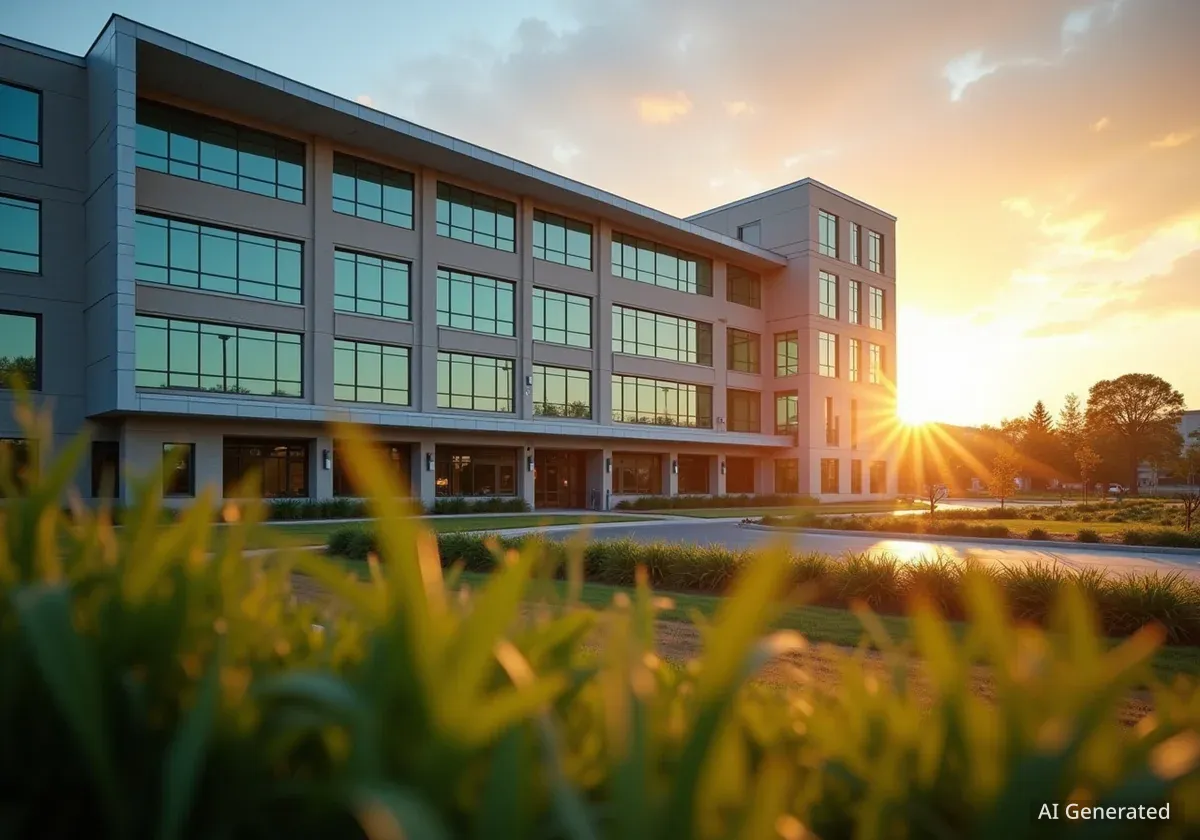Sila Realty Trust, a real estate investment trust specializing in healthcare properties, has expanded its portfolio with the acquisition of two inpatient rehabilitation facilities for a total of $70.3 million. The newly constructed properties are located in Plano, Texas, and Peoria, Arizona, two major metropolitan areas in the United States.
This strategic purchase strengthens Sila's presence in high-growth healthcare markets and establishes a partnership with Reunion Rehabilitation Hospitals and Nobis Rehabilitation Partners, the operators of the facilities. The move highlights the increasing investor focus on specialized medical real estate driven by demographic trends.
Key Takeaways
- Acquisition Cost: Sila Realty Trust purchased two facilities for a combined price of $70.3 million.
- Property Locations: The assets are located in Plano, Texas, and Peoria, Arizona, both considered top U.S. metropolitan markets.
- Asset Type: Both properties are newly built, fully operational inpatient rehabilitation facilities.
- Strategic Partnerships: The acquisitions involve a new relationship with operators Reunion Rehabilitation Hospitals and Nobis Rehabilitation Partners.
- Market Focus: The transaction underscores Sila's strategy of investing in high-demand healthcare real estate in growing regions.
A Strategic Expansion in Key Healthcare Markets
Sila Realty Trust, Inc. (NYSE: SILA) announced the completion of a significant transaction aimed at enhancing its healthcare real estate holdings. The acquisition includes two state-of-the-art inpatient rehabilitation facilities (IRFs), which are critical components of the modern healthcare system, providing intensive therapy for patients recovering from serious injuries, illnesses, or surgeries.
The total investment of $70.3 million was used to purchase the facilities located in Plano, a major suburb in the Dallas-Fort Worth metroplex, and Peoria, a growing city near Phoenix. According to the company, these locations were selected due to their robust local economies and strong demand for specialized medical services.
The Plano and Peoria Facilities
The facilities are operated by Reunion Rehabilitation Hospitals, a venture managed by Nobis Rehabilitation Partners. They are positioned to serve patients referred from major nearby acute-care hospitals, making them essential hubs in their respective regional healthcare networks.
Both the Plano and Peoria centers are modern, recently constructed buildings designed to meet the latest standards in patient care and rehabilitation technology. Their high utilization rates since opening were a key factor in Sila's decision to acquire them, indicating consistent patient demand and stable revenue streams.
Understanding Inpatient Rehabilitation Facilities (IRFs)
Inpatient rehabilitation facilities are specialized hospitals that provide intensive, multi-disciplinary therapy to patients recovering from conditions like stroke, brain injury, spinal cord injury, or complex orthopedic surgery. Unlike skilled nursing facilities, IRFs offer a more intensive level of care, typically requiring at least three hours of therapy per day, five days a week, under the direct supervision of a physician specializing in rehabilitation.
Financial Implications and Corporate Strategy
This acquisition is part of Sila's broader strategy to build a resilient portfolio focused exclusively on the healthcare sector. By investing in net lease properties, Sila aims to generate predictable, long-term cash flow from tenants in a growing and non-discretionary industry.
However, growth through acquisition often involves taking on new debt. Analysts are watching how Sila manages its interest expenses and overall debt levels as it continues to expand. The ability to effectively integrate new assets while maintaining healthy profit margins is a primary factor for the company's long-term financial performance.
Company Projections
Prior to this acquisition, analysts following Sila Realty Trust had projected the company could reach $243.6 million in revenue and $54.7 million in earnings by 2028. Achieving these targets would require an average annual revenue growth of 8.7% from its current standing.
Balancing Growth with Shareholder Value
In a move to support shareholder value amid its expansion efforts and market fluctuations, Sila's management recently announced a share repurchase program. The company has authorized the buyback of up to $75 million of its common stock.
Share repurchase programs are often seen by the market as a sign of management's confidence in the company's future prospects and a belief that its stock may be undervalued. This action provides a mechanism to return capital to shareholders while the company continues to pursue its acquisition-focused growth strategy.
"The introduction of a share repurchase program authorizing up to US$75 million in buybacks stands out, signaling management’s focus on supporting shareholder value in the context of recent portfolio expansion and market volatility."
The Healthcare Real Estate Sector Outlook
The investment in the Plano and Peoria facilities reflects a broader trend within the real estate investment trust (REIT) industry. Healthcare properties are increasingly viewed as a stable and defensive asset class, largely insulated from the economic cycles that affect retail or office real estate.
Several demographic factors support this view:
- Aging Population: The aging of the Baby Boomer generation is expected to drive sustained demand for all types of healthcare services, including post-acute care like inpatient rehabilitation.
- Advancements in Medicine: Medical advancements are allowing people to survive conditions that were once fatal, increasing the need for rehabilitative services to improve quality of life post-treatment.
- Shift to Outpatient and Specialized Care: The healthcare system is moving towards more specialized and cost-effective care settings outside of traditional hospitals, a trend that directly benefits facilities like IRFs.
Investment in High-Growth Regions
Sila's choice of Texas and Arizona is also significant. Both states are experiencing rapid population growth, attracting new residents and businesses. This demographic expansion places greater demand on the existing healthcare infrastructure, creating opportunities for real estate investors and healthcare providers.
By securing modern, well-located assets in these markets, Sila Realty Trust is positioning itself to capitalize on these long-term demographic and healthcare trends. The partnership with established operators like Reunion and Nobis further reduces operational risk and ensures the facilities are managed by experienced professionals in the rehabilitation field.





